Filter by
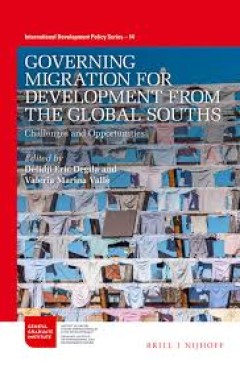
Governing Migration for Development from the Global Souths : Challenges and O…
The 14th thematic volume of International Development Policy provides perspectives through case studies from the global Souths focusing on the challenges and opportunities of governing migration on the subnational, national, regional and international levels. Bringing together some thirty authors from Africa, Latin America and Asia, the book explores existing and new policies and frameworks in …
- Edition
- -
- ISBN/ISSN
- 978-90-04-52277-0
- Collation
- xxviii, 370pp
- Series Title
- International Development Policy, Volume: 14
- Call Number
- -

Oslo Manual on Select Topics of the Law of Armed Conflict = Rules and Commentary
This new open access book provides a valuable restatement of the current law of armed conflict regarding hostilities in a diverse range of contexts: outer space, cyber operations, remote and autonomous weapons, undersea systems and devices, submarine cables, civilians participating in unmanned operations, military objectives by nature, civilian airliners, destruction of property, surrender, sea…
- Edition
- 1
- ISBN/ISSN
- 9783030391690
- Collation
- X, 151 hlm; ill., lamp.,
- Series Title
- -
- Call Number
- -

Arbitrary Withholding of Consent to Humanitarian Relief in Non-international …
How to legally assess the situation when humanitarian actors in non-international armed conflicts are arbitrarily denied access to the affected civilian population? The book answers this question from the perspective of the five main actors involved in humanitarian relief in non-international armed conflicts: the affected State, non-State armed groups, humanitarian actors, non-belligerent State…
- Edition
- Volume: 69
- ISBN/ISSN
- 978-90-04-68934-3
- Collation
- -
- Series Title
- -
- Call Number
- -
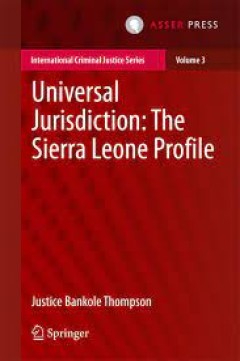
Universal Jurisdiction: The Sierra Leone Profile
The doctrine of universal jurisdiction has evolved throughout modern times in the context of global criminal justice as a paramount agent of combating impunity emanating from international criminality. Sierra Leone, as a member of the international community and the United Nations, has, in recent times, been a pioneer in the progressive application and development of international criminal law …
- Edition
- -
- ISBN/ISSN
- 978-94-6265-054-1
- Collation
- -
- Series Title
- -
- Call Number
- -
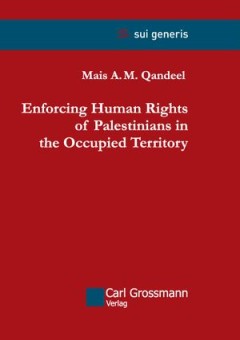
Enforcing Human Rights of Palestinians in the Occupied Territory
This work examines the applicability of international human rights and humanitarian laws as well as the domestic laws in order to assess the contribution of these laws in protecting the fundamental human rights of Palestinians in the Occupied Territory. It conducts in-depth case studies of three basic rights: the right to movement, the right to property, and the right to equality and non-discri…
- Edition
- -
- ISBN/ISSN
- 9783941159303
- Collation
- 448 halaman
- Series Title
- -
- Call Number
- 340 QAN e
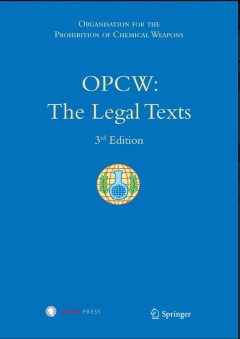
OPCW: The Legal Texts
The Convention on the Prohibition of the Development, Production, Stockpiling and Use of Chemical Weapons and on Their Destruction (CWC), which entered into force on 29 April 1997, bans an entire category of weapons of mass destruction. The CWC has now been in force for almost twenty years and having 190 States Parties as at July 2014, has almost achieved universal adherence. To achieve its obj…
- Edition
- 3
- ISBN/ISSN
- 978-94-6265-043-5
- Collation
- XXII, 783
- Series Title
- -
- Call Number
- -
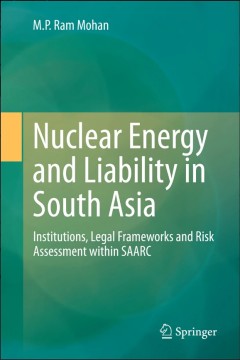
Nuclear Energy and Liability in South Asia:Institutions, Legal Frameworks and…
This book advocates pursuing a regional approach to nuclear risk framework, which it argues is more promising in the current scenario than the non-achievable global regime. In the development of international legislation on liability, the nuclear energy sector represents an alternative approach to a transboundary liability regime. Building on this foundation and following the Chernobyl accident…
- Edition
- 1
- ISBN/ISSN
- 978-81-322-2342-9
- Collation
- Number of Pages XIX, 142
- Series Title
- -
- Call Number
- -
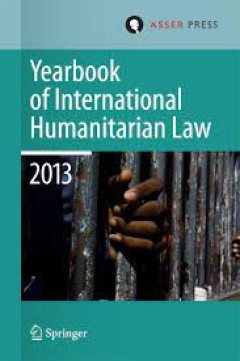
Yearbook of International Humanitarian Law 2013
This volume contains several articles on the topic ‘Detention in non-international armed conflict’, including the Copenhagen Process, and moreover features contributions on autonomous weapons systems, Apartheid and the second Turkel Report. It also contains an elaborate Year in Review and a special section on the high-level Boundaries of the Battlefield symposium, including a conference rep…
- Edition
- -
- ISBN/ISSN
- 978-94-6265-038-1
- Collation
- -
- Series Title
- -
- Call Number
- -
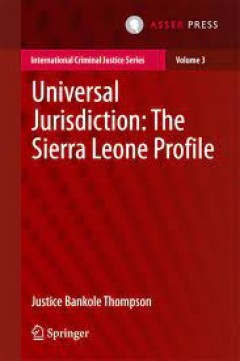
Universal Jurisdiction: The Sierra Leone Profile
The doctrine of universal jurisdiction has evolved throughout modern times in the context of global criminal justice as a paramount agent of combating impunity emanating from international criminality. Sierra Leone, as a member of the international community and the United Nations, has, in recent times, been a pioneer in the progressive application and development of international criminal law …
- Edition
- -
- ISBN/ISSN
- 978-94-6265-054-1
- Collation
- XX, 141
- Series Title
- -
- Call Number
- -
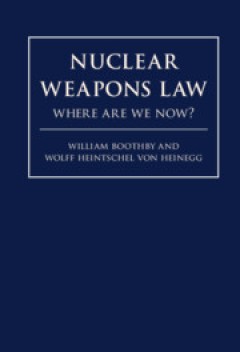
Nuclear Weapons Law: Where Are We Now?
Buku ini mengkaji hukum yang berkaitan dengan kepemilikan, ancaman, atau penggunaan senjata nuklir. Dengan membahas secara berurutan hukum tentang kedaulatan, hukum ancaman atau penggunaan kekuatan, pelaksanaan permusuhan nuklir, netralitas, undang-undang senjata dan kejahatan perang.
- Edition
- -
- ISBN/ISSN
- 9781009052634
- Collation
- -
- Series Title
- -
- Call Number
- T 341.67 BOO n
 Computer Science, Information & General Works
Computer Science, Information & General Works  Philosophy & Psychology
Philosophy & Psychology  Religion
Religion  Social Sciences
Social Sciences  Language
Language  Pure Science
Pure Science  Applied Sciences
Applied Sciences  Art & Recreation
Art & Recreation  Literature
Literature  History & Geography
History & Geography